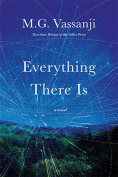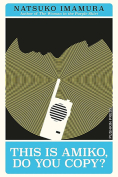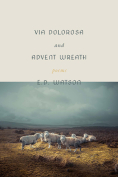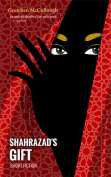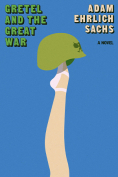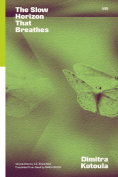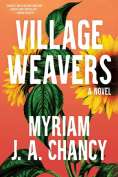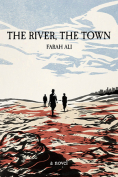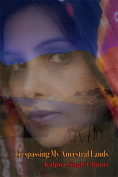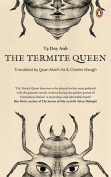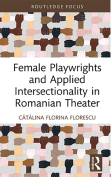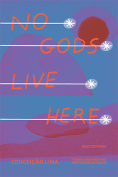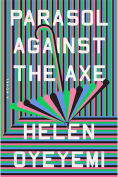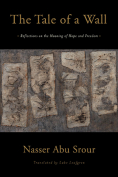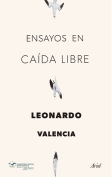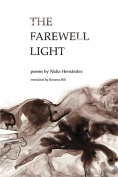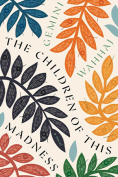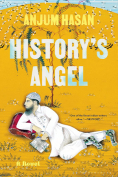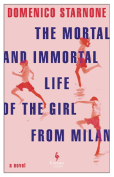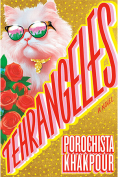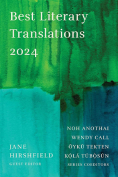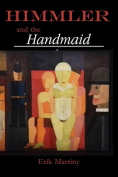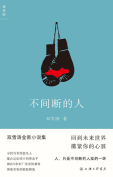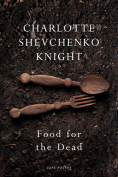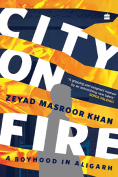No Gods Live Here: Selected Poems by Conceição Lima
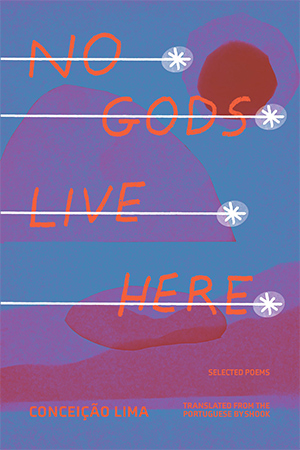 Dallas. Phoneme Media. 2024. 225 pages.
Dallas. Phoneme Media. 2024. 225 pages.
Conceição Lima was born in 1961, in São Tomé, the largest island comprising the small western African nation of São Tomé and Príncipe. She studied in Lisbon and in London, where she also worked for many years as a journalist and producer for the BBC. Upon returning to her country, she was one of the founders of the Santomean National Union of Writers and Artists and continued to work as a journalist while writing and publishing poetry. Today, Lima is the foremost Santomean poet of her generation and one of the most important contemporary writers from African countries where Portuguese is an official language.
To date Lima has published four collections of poetry and one of crônicas—short, nonfictional narratives. Her books have been translated into German, Italian, and Spanish, and she has participated in numerous anthologies at home, in Portugal, Brazil, and the UK. In the US, several of Lima’s poems have appeared with Words Without Borders, and her “Afroinsularity,” translated by Shook, was one of the two winners of the 2021 Poems in Translation Contest, co-sponsored by WWB and the Academy of American Poets. Nevertheless, Lima is still mostly unknown in the United States, but this carefully curated, beautifully translated bilingual edition will certainly help bring her work to a wider readership.
No Gods Live Here includes titles from all of the author’s books, presented chronologically and followed by a selection of recent poems. Thus, the reader can appreciate the evolution of her poetic voice as well as some distinct recurrent themes and imagery. Notably, a deep, strong love for her country informs Lima’s poetry, and her poems may be read as a series of songs of praise to Santomean geography, history, and culture. Many of the poems are endeavors to comprehend the nation’s identity and, consequently, to understand the poetic I’s own self, as they are inextricably intertwined. From the opening poem, “Motherland,” onward, São Tomé and Príncipe emerges as the main theme, appearing not as some abstract notion but as a main character, an incarnate entity, a lost and always sought-after lover, or nurturer:
I want to be awake
if I return to the home’s womb
to touch the daytime penumbra
of its walls
to relive, on the skin of my fingers, the
softness
of subterranean days
moments gone by
. . .
And if I question myself
it is to make sense of you
current of pain waterfall of rage
since the rain lingers and the obô saddens
at midday
. . .
A basalt step emerges from the sea
and in the vines’ dance I reenter
your body
beloved temple
my melancholy castle
of stiff boards and plumbs
Lima belongs within the eminent lineage of African poets and intellectuals who fought against colonialism and for the independence of their countries, such as Agostinho Neto, Mário de Andrade (both from Angola), and Amílcar Cabral (Guinea-Bissau), for whom Lima wrote the epic “All of Cabral’s Deaths and a Mountain.” Two distinguished Santomean poets were also part of that group: Francisco José Tenreiro and Alda do Espírito Santo, whom Lima credits as having been a direct influence on her work. While her antecessors often wrote about their countries’ struggles for independence, Lima evokes in her poetry theirs and other, more distant voices: the arrival of the colonists, the slavers and the enslaved; the lives of so many men and women who died on the plantations, and of those who fought against slavery and the colonial powers—all of them “Heroes”:
At the base of the plaza
beneath the flagpole
visible bones, severe, throb.
Panicked birds drop their trumpets
the statues retreat in silence
toward distant landscapes.
The dead who died without questions
return slowly with open eyes
asking for their crucified wings.
Lima’s poetry retraces the Santomean landscape and its past but also celebrates Pan-Africanism, as in “Dark Song to My Roots,” in which she speaks of her “obstinate cousin” Alex [Haley] and of their remote origins. Finally, “insularity” is a fundamental theme in her work, a leitmotif in the literature both of São Tomé and Príncipe and of Cape Verde, not only because of their geographical position as island nations but especially due to their history of exploitation and isolation by colonial powers, a condition eloquently described in her award-winning “Afroinsularity.”
The poems in this volume brim with intensity and poignancy, be they brief like “Archipelago” (“The enigma is some other thing—no gods live here / Just men and the sea, immovable inheritance”) or long epics, like “Dark Song to My Roots” and others named above. In all, they place the author alongside giants of world poetry, such as Pablo Neruda and Maya Angelou and have found in Shook an ideal translator, able to combine the delicacy, respect, and creativeness that Lima’s poetry demands.
Editorial note: Read “Archipelago” and four other poems, which first appeared in the January 2016 issue of WLT.
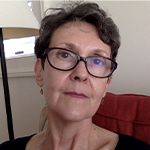 Cristina Pinto-Bailey is a writer, scholar, and translator of Brazilian literature. Her most recent translations, “Four Flash Fiction Stories” by Cristiane Sobral, appear in Latin American Literature Today.
Cristina Pinto-Bailey is a writer, scholar, and translator of Brazilian literature. Her most recent translations, “Four Flash Fiction Stories” by Cristiane Sobral, appear in Latin American Literature Today.
